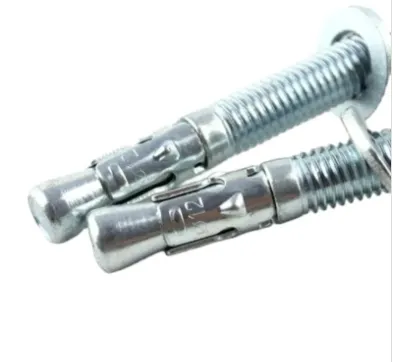Oct . 22, 2024 08:00 Back to list
Efficient Tool for Securing and Tightening Screws with Precision and Ease
The Importance of Screw Tighteners in Modern Engineering
In today's fast-paced industrial environment, maintaining the integrity of assembled products is paramount. One often overlooked yet crucial tool in ensuring the reliability of assemblies is the screw tightener. A screw tightener, also known as a torque wrench or screw driver, is an indispensable instrument designed to apply a specific torque to screws and bolts, ensuring that they are tightened to the manufacturer's specifications.
The significance of proper screw tightening cannot be overstated. When screws are not tightened adequately, it can lead to structural failures, product malfunctions, and safety hazards. Conversely, overtightening can strip threads, damage components, and ultimately lead to similar failures. Thus, utilizing a screw tightener that allows for precise torque application is critical in engineering and manufacturing processes.
Types of Screw Tighteners
Screw tighteners come in various types, each suitable for different applications
. The most common types include1. Manual Screw Tighteners These tools rely on human strength and typically incorporate a dial or scale to measure the applied torque. They are straightforward to use and are often employed in less critical applications or for tasks that require low torque.
2. Click-Type Torque Wrenches These are a popular choice among professionals. They produce a clicking sound when the preset torque level is reached, indicating to the user that it is time to stop applying pressure. This eliminates the guesswork involved in manual tightening and helps prevent overtightening.
3. Digital Torque Wrenches Incorporating advanced technology, digital torque wrenches offer precision readings and often feature memory functions, allowing users to store multiple torque settings. These tools are ideal for high-stakes environments where accuracy is vital.
4. Hydraulic and Pneumatic Tighteners For heavy-duty applications, hydraulic and pneumatic screw tighteners are commonly used. These tools often deliver high torque levels with minimal user effort, making them suitable for large-scale manufacturing settings where efficiency is essential.
screw tightener

Benefits of Using Screw Tighteners
Implementing the correct screw tightening processes with appropriate tools results in several benefits
1. Enhanced Safety Properly tightened screws reduce the likelihood of bolt loosening over time, which can lead to product failure or accidents, particularly in critical applications like aerospace or automotive engineering.
2. Improved Quality Products assembled with correctly torqued screws exhibit improved structural integrity and performance, leading to higher product quality and customer satisfaction.
3. Time Efficiency Using specialized screw tighteners reduces the time spent on assembly and maintenance, as it streamlines the process and minimizes the chances of rework due to errors.
4. Cost Savings Reducing failures and defects leads to significant cost savings in both repair and replacement, ultimately enhancing profitability for manufacturers.
Conclusion
As manufacturing processes evolve and become more intricate, the importance of precise screw tightening cannot be overlooked. Screw tighteners play a critical role in maintaining product quality, ensuring safety, and enhancing the overall efficiency of production lines. Investing in quality screw tighteners tailored to specific applications is a wise decision for any engineering or manufacturing operation. Embracing these tools not only showcases a commitment to quality and safety but also paves the way for innovation in design and assembly processes.


